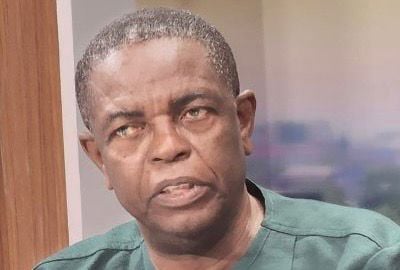Kwesi Pratt Jr., a veteran journalist and Managing Editor of the Insight newspaper, has asserted that the New Patriotic Party (NPP) is in dire need of a leadership overhaul. Following the party’s disappointing performance in the 2024 elections, Pratt argues that the NPP requires a new generation of leaders who possess the sobriety, reflectiveness, and vision to chart a new course for the party. He contends that the current leadership seems to have lost its way and is unable to effectively address the challenges facing the party. Pratt’s call for new leadership underscores the urgent need for the NPP to re-evaluate its strategies and direction if it hopes to regain its political footing.
Pratt’s critique of the NPP extends to the recent public apology issued by former Vice President Dr. Mahamudu Bawumia regarding the party’s performance in government. Pratt questions the sincerity of the apology, particularly in light of the NPP’s repeated claims of having surpassed the achievements of Ghana’s first President, Dr. Kwame Nkrumah. He argues that if the NPP genuinely believed its own rhetoric about its superior performance, an apology would be unnecessary and even contradictory. This discrepancy, according to Pratt, highlights a disconnect between the NPP’s self-perception and the reality of its governance, further emphasizing the need for introspection and a change in leadership.
Pratt’s analysis points to a deeper issue within the NPP: a potential crisis of identity. The party’s wavering between boasting about its accomplishments and apologizing for its shortcomings suggests a lack of clarity about its own performance and its place in Ghana’s political landscape. This ambiguity, Pratt implies, is a symptom of a deeper malaise within the party, a lack of a cohesive vision and a clear understanding of its core values. The apology, therefore, appears less as a genuine expression of remorse and more as a tactical maneuver, further undermining the party’s credibility in the eyes of the public.
The veteran journalist’s commentary underscores the importance of self-assessment and accountability in politics. He suggests that the NPP’s focus should not be on comparing itself to past administrations, but rather on honestly evaluating its own performance and identifying areas for improvement. The tendency to invoke the legacy of Dr. Nkrumah, while simultaneously apologizing for perceived shortcomings, suggests a defensive posture and an inability to objectively assess the party’s own record. Pratt’s call for sober reflection implies that the NPP needs to move beyond self-congratulatory rhetoric and engage in a genuine process of introspection to understand the reasons behind its electoral setbacks.
Furthermore, Pratt’s emphasis on the need for leaders who can “imagine and design a better future” suggests that the NPP requires a forward-looking approach, rather than dwelling on past glories or perceived injustices. The party, he argues, needs to articulate a clear vision for the future of Ghana, one that resonates with the electorate and addresses the pressing challenges facing the nation. This requires not only a change in leadership but also a shift in mindset, a move away from self-justification and towards a more proactive and innovative approach to policymaking. The ability to envision and articulate a compelling future for Ghana, Pratt suggests, is crucial for the NPP to regain the trust and support of the electorate.
In essence, Kwesi Pratt Jr.’s analysis paints a picture of an NPP at a crossroads. The party’s recent electoral performance, coupled with its seemingly contradictory pronouncements, suggests a need for fundamental change. Pratt’s call for new, reflective leadership capable of envisioning a better future for the party is not merely a critique of the current leadership but a plea for the NPP to rediscover its purpose and relevance in Ghana’s political landscape. His commentary serves as a reminder that political success requires more than just rhetoric; it demands a clear vision, a commitment to accountability, and the ability to adapt to the evolving needs and aspirations of the citizenry. The NPP’s future, according to Pratt, hinges on its ability to heed this call for renewal and embark on a path of genuine self-reflection and reform.


